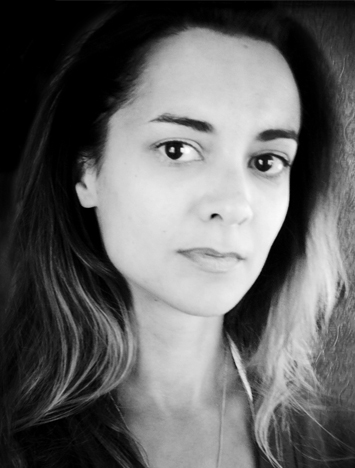 Women’s Worldwide Web is extremely proud to feature the work of Izabella Demavlys, who portrays the stunning spirit and beauty of women who have survived acid attacks. Our editor-in-chief would like to alert readers that the following piece contains material that may be upsetting.
Women’s Worldwide Web is extremely proud to feature the work of Izabella Demavlys, who portrays the stunning spirit and beauty of women who have survived acid attacks. Our editor-in-chief would like to alert readers that the following piece contains material that may be upsetting.
Women’s Worldwide Web interviews fashion photographer turned photojournalist and human rights advocate, Izabella Demavlys, with a special focus on her “Without a Face” series, which both challenges Western society’s conventional ideas of beauty and raises awareness about the tragedy of acid attacks against women in Pakistan.
Through her portraits of women survivors of acid attacks in Pakistan, Izabella Demavlys conveys her conviction that beauty transcends physical appearance and may be found in women’s “triumph in their personal struggles, the radiance of their inner strength and accomplishments throughout life.”
After studying at the Royal Institute of Technology in Melbourne, Australia and Parsons School of Design in New York City, Izabella embarked on a career in fashion photography. But, seeking photographic expression with more meaning, depth and impact, she struggled to find her voice within the world of fashion. “I realized that I was sidetracked, unfulfilled and unhappy with what I was doing. I felt my work was uninspiring, non-educational, and that it was in direct contrast to what I really believed in.”
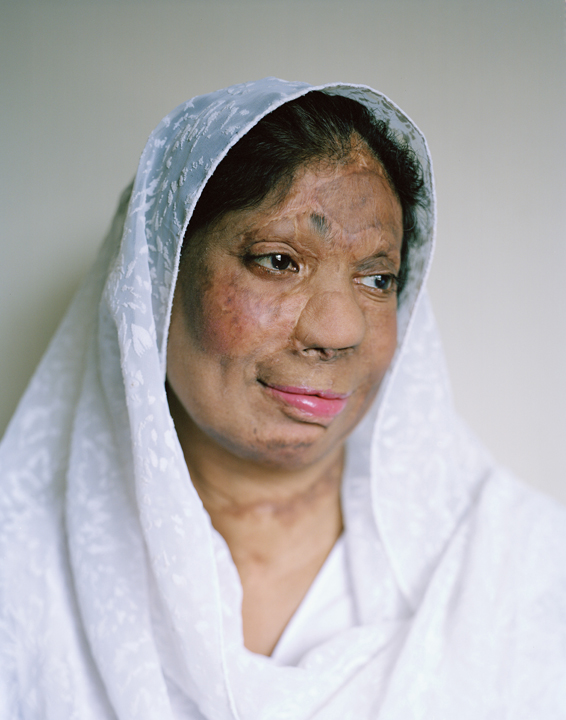 Izabella found her true calling in 2009 when she travelled to Pakistan and photographed women survivors of acid attacks, a journey that culminated in her stunning “Without a Face” series of portraits. She photographed survivors from across the country and documented their experience. Raffat was attacked, while sleeping, by the cousin whom she had refused to marry. Kanwal was assaulted by a stranger at her doorstep. Bushra was ambushed by her in-laws, following a dispute over money. Memona was attacked by a boy as she was walking to school.
Izabella found her true calling in 2009 when she travelled to Pakistan and photographed women survivors of acid attacks, a journey that culminated in her stunning “Without a Face” series of portraits. She photographed survivors from across the country and documented their experience. Raffat was attacked, while sleeping, by the cousin whom she had refused to marry. Kanwal was assaulted by a stranger at her doorstep. Bushra was ambushed by her in-laws, following a dispute over money. Memona was attacked by a boy as she was walking to school.
Precise statistics on acid attacks in Pakistan are difficult to obtain, owing in part to under-reporting; victims fear retaliation by their assailants and stigma attached to speaking up. The Acid Survivors Foundation (ASF) estimates that there are 150 attacks each year in Pakistan, many of these carried out by relatives following an argument over, for example, the refusal of a marriage proposal. Around half of all acid attack victims are women, with men making up 26 percent and children constituting the remainder.
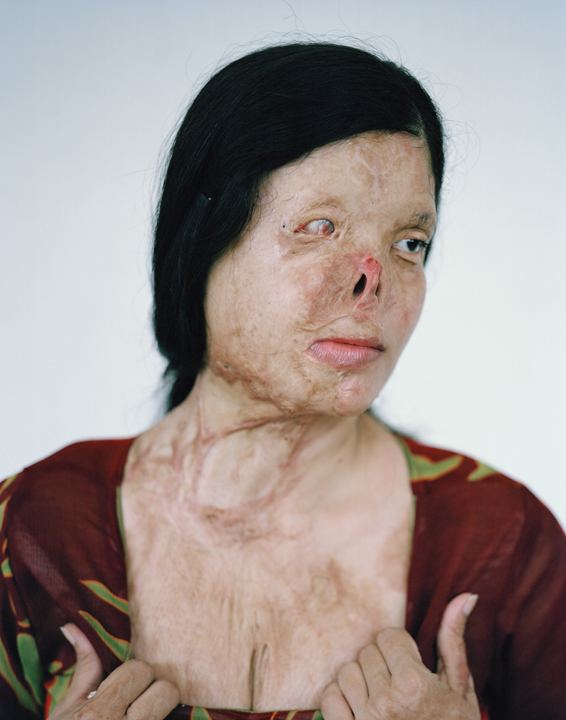 In response to this alarming phenomenon, and relying on photography’s power to awaken public consciousness, Izabella uses her photography as a catalyst for change. She considers awareness-raising efforts, such as hers, crucial in promoting social progress: “Change comes from within the affected societies and from us, the viewers. Also, change takes time. I know my work has brought up some heated discussions around this specific subject and made people aware that acid attacks are continuing to happen in Pakistan. I hope to continue to raise awareness in order to promote human rights and social justice.”
In response to this alarming phenomenon, and relying on photography’s power to awaken public consciousness, Izabella uses her photography as a catalyst for change. She considers awareness-raising efforts, such as hers, crucial in promoting social progress: “Change comes from within the affected societies and from us, the viewers. Also, change takes time. I know my work has brought up some heated discussions around this specific subject and made people aware that acid attacks are continuing to happen in Pakistan. I hope to continue to raise awareness in order to promote human rights and social justice.”
Izabella’s work in Pakistan has aroused a whirlwind of public attention. Her “Without a Face” series illuminates the awe-inspiring courage and vitality of these women who have survived acid attacks, and confronts viewers with the women’s astonishing ability to radiate resilient hope for their future, despite their trauma and disfigurement.
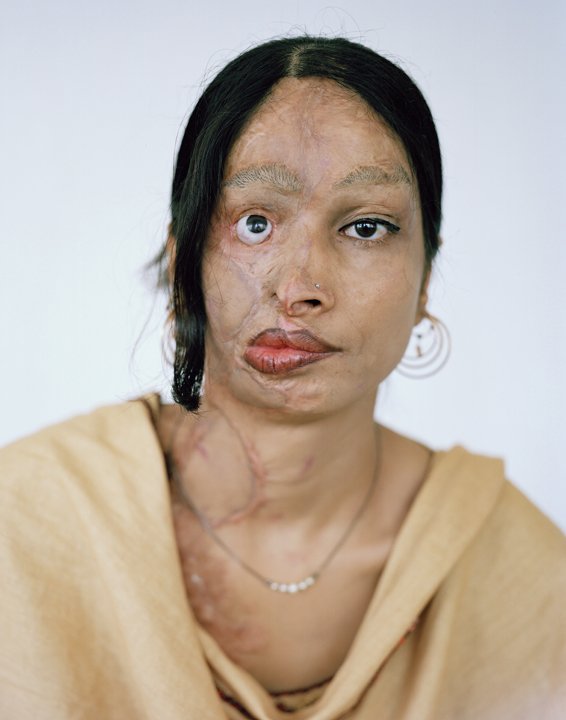 Izabella’s photos also provocatively question society’s conventional, skin-deep depictions of beauty. She is critical of prevailing, simplistic representations—or misrepresentations—of beauty in the Western media. “Instead of accepting oneself, becoming a spiritually-enriched person through meaningful activity, work and good health, a lot of women often focus on shallower pursuits, especially younger women,” she says. “How many TV shows have we seen where young women fiercely compete to become supermodels? Everyone wants to be physically beautiful…often to the detriment of cultivating what’s on the inside. What do you have then? In the end, who have you inspired? And with what? What have you accomplished? Is being pretty an accomplishment?”
Izabella’s photos also provocatively question society’s conventional, skin-deep depictions of beauty. She is critical of prevailing, simplistic representations—or misrepresentations—of beauty in the Western media. “Instead of accepting oneself, becoming a spiritually-enriched person through meaningful activity, work and good health, a lot of women often focus on shallower pursuits, especially younger women,” she says. “How many TV shows have we seen where young women fiercely compete to become supermodels? Everyone wants to be physically beautiful…often to the detriment of cultivating what’s on the inside. What do you have then? In the end, who have you inspired? And with what? What have you accomplished? Is being pretty an accomplishment?”
Izabella depicts the beauty of Raffat, Kanwal, Bushra and Memona in their inner strength and courageous resolve to embrace the future, to move beyond their traumas and build happy, fulfilling lives for themselves and their families. “The women displayed enormous strength and a willingness to keep on living. This is something we can all learn a great deal from. Some people go through tremendous amounts of pain in their lives and still carry on.”
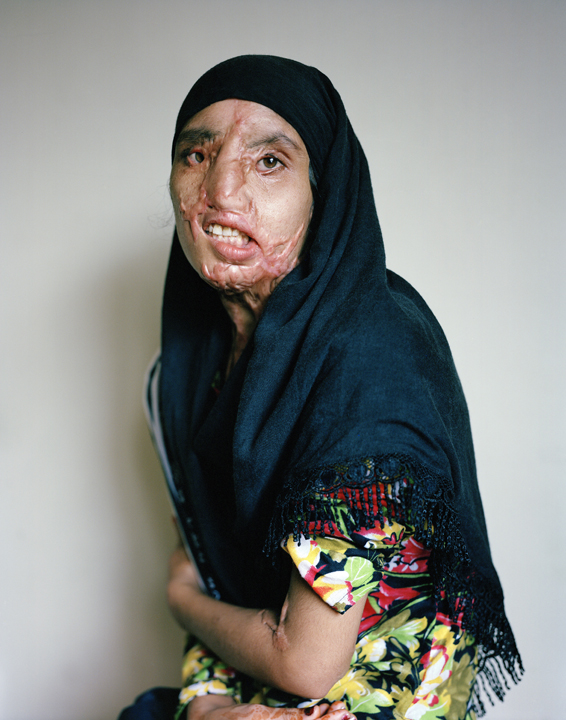 Izabella has chosen to continue to work independently in order to focus on issues that she considers central to the improvement of society—particularly in the domain of women’s empowerment. “Growing up and seeing women struggle around me made me realize my fundamental need to bring important issues about women into focus,” she explains. Currently, Izabella is working on a documentary project with women who have sought refuge at SafePlace, a shelter for survivors of domestic violence and sexual assault in Austin, Texas, as they embark on their path to recovery and empowerment.
Izabella has chosen to continue to work independently in order to focus on issues that she considers central to the improvement of society—particularly in the domain of women’s empowerment. “Growing up and seeing women struggle around me made me realize my fundamental need to bring important issues about women into focus,” she explains. Currently, Izabella is working on a documentary project with women who have sought refuge at SafePlace, a shelter for survivors of domestic violence and sexual assault in Austin, Texas, as they embark on their path to recovery and empowerment.
We invite you to learn more about Izabella’s remarkable work, using photography to raise awareness about women’s empowerment issues and to encourage reflection on prevailing conceptions of women’s beauty.
We also invite you to visit the Acid Survivors Foundation to learn more about how you can help to put an end to acid violence.
© Women’s Worldwide Web 2011













